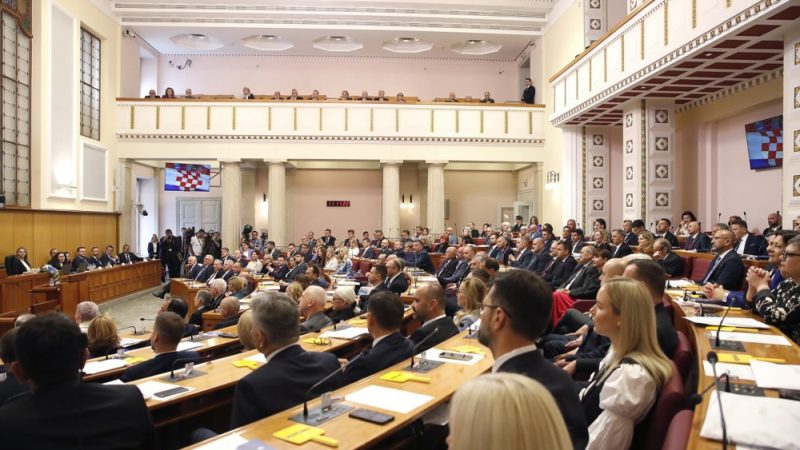Croatia's parliament on Friday (May 17) approved a new coalition government that brings together the ruling conservatives and right-wing nationalist parties.
Prime Minister Andrej Plenkovic formed a new government with members of the nationalist, anti-immigration Fatherland Movement (DP) party after last month's inconclusive election results.
Analysts said Plenković's centre-right HDZ (Croatian Democratic Union) party will retain the interior and culture ministers under a coalition agreement, which means that policy in key areas such as immigration and minority rights will be left in place. It means that there is no change.
DF, who is joining government for the first time, will lead the newly created Ministry of Demography, Agriculture, and part of the Ministry of Economy, which had been split into two ministries. HDZ retained ministers from the previous government and brought in only one new face.
Parliament Speaker Gordan Jandroković said 79 MPs voted in favor of the coalition government and 61 opposed.
“I note that the confidence has been given to the new cabinet,” he said.
In April's general election, Plenković's HDZ won 61 seats, while the Democratic Progressive Party secured 14 seats.
The long-ruling HDZ last year led the NATO member state of 3.8 million people to join the EU's Schengen free travel area and the euro zone.
“We want a successful, vibrant, just, sustainable and sovereign Croatia,” Plenković told MPs presenting the government plan.
“It's clear that Prime Minister Plenković will find a way to continue to lead a centrist policy centered on the EU,” political analyst Davor Genero said. “I don't think there will be any major changes in public policy. Croatia remains stable as a country that advocates for a more Europe.”
Andrius Tursa, advisor for Central and Eastern Europe at advisory firm Teneo, said: “Although there may be a slight shift to the right in some areas, the government remains one with continuity, both in terms of composition and policy priorities.'' It's very similar to.” .
“In foreign policy, the HDZ-led government will maintain a strong pro-Western and pro-Ukrainian stance,” Tursa said, adding that the new government's biggest challenge will be fighting corruption, which has a negative impact on the business environment. He added that it would be.
The European Union member state of 3.8 million people struggles with corruption, labor shortages, the eurozone's highest inflation rate and tensions over immigration.
(Edited by Georgi Gotev)




